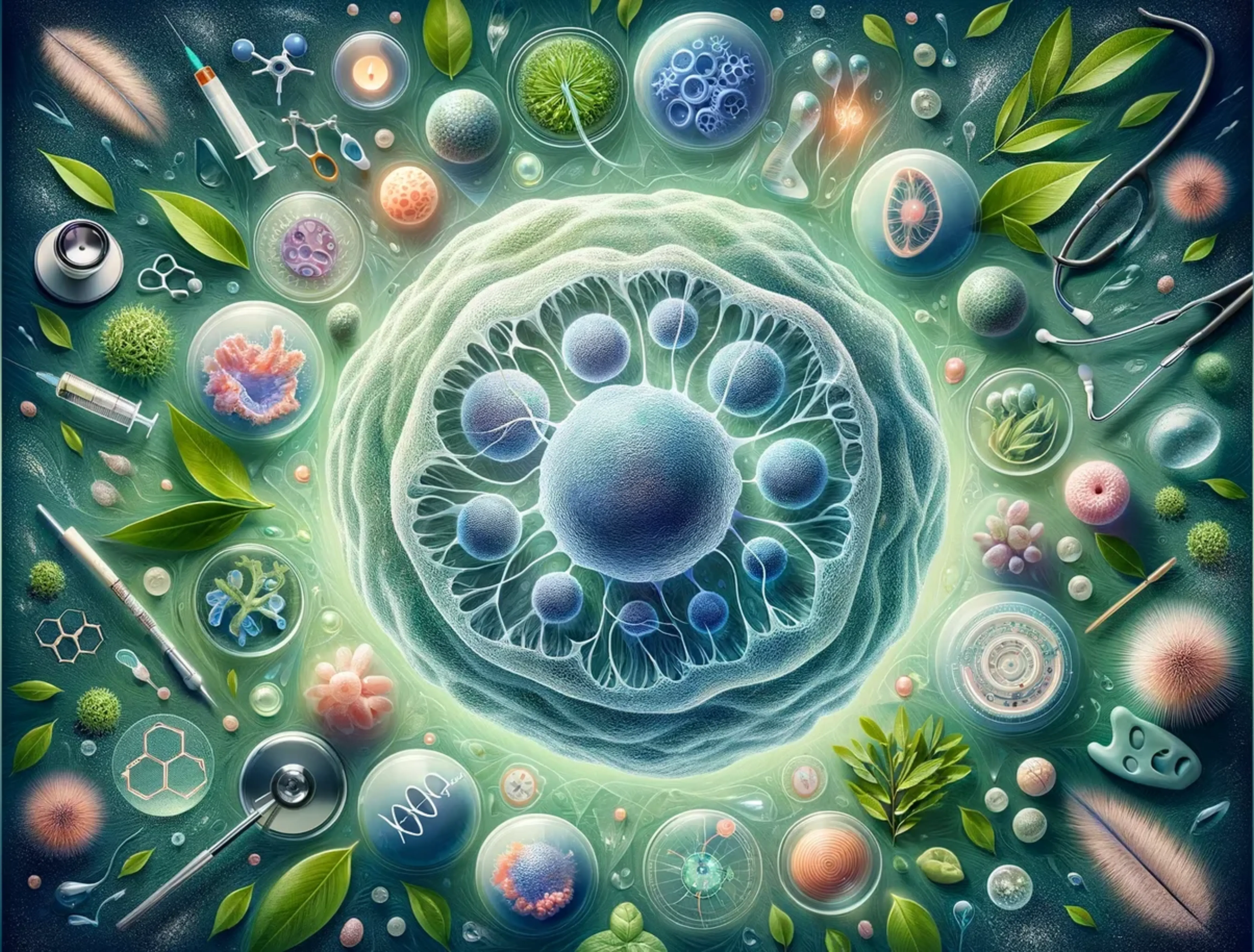Everything You Need To Know About Collagen and Health
Imagine waking up one day with visibly firmer, more radiant skin, and stronger, healthier joints. You might be surprised to learn how collagen, a protein abundant in your body, holds the key to achieving this.

As you explore the intricate relationship between collagen and your overall well-being, you’ll uncover the fascinating ways in which this essential component impacts various aspects of your health.
From understanding its structural role to discovering how to support collagen production, the journey to optimal health begins with unraveling the mysteries of collagen.
Importance of Collagen in Health
Collagen is a foundational protein essential for maintaining the structural integrity and functionality of various tissues in the human body. Its benefits are vast, impacting skin elasticity, muscle strength, bone density, and the health of connective tissues.
As you age, collagen levels decrease, affecting these vital functions. To counteract this decline, many turn to collagen supplementation.
Enhancing collagen levels through supplementation can improve skin elasticity, reducing the appearance of wrinkles and fine lines. Additionally, increased collagen intake can support muscle strength, aiding in overall physical performance. Strong bones rely on collagen for density and resilience, crucial for preventing fractures and maintaining mobility. Moreover, connective tissues such as tendons and ligaments benefit from collagen, promoting joint health and flexibility.
Considering collagen supplementation could be a practical step to support your body’s various tissues as you navigate the natural aging process. By understanding the importance of collagen in maintaining health, you can make informed choices to promote overall well-being.
Diversity of Collagen Types
To grasp the full scope of collagen’s impact on health, understanding the diverse array of collagen types is crucial for appreciating the intricate roles they play in various bodily functions.
Collagen diversity is evident in the different types serving specific purposes in the body. Type I collagen, constituting 90% of the body’s collagen, provides essential structure to skin, bones, tendons, and ligaments, ensuring tissue support and strength.
Type II collagen is found in elastic cartilage, crucial for joint flexibility and support, while Type III collagen is present in muscles, arteries, and organs, contributing to muscle function and vascular health.
Type IV collagen, located in skin layers, plays a key role in maintaining skin structure and integrity. Lastly, Type V collagen is responsible for the cornea’s health, skin layers, hair strength, and placental tissue support.
This collagen diversity highlights the specialized functions each type performs in maintaining overall health and bodily functions.
Impact of Aging on Collagen
Experiencing a decline in collagen production as you age can lead to visible changes in your skin, muscles, and joints. This natural process affects various aspects of your body, influencing both appearance and functionality. Here’s how aging impacts collagen:
- Collagen Synthesis: With age, your body produces less collagen, affecting the skin’s elasticity and firmness.
- Age-Related Changes: Reduced collagen leads to wrinkles, sagging skin, and muscle weakness, reflecting the body’s decreased ability to maintain tissue integrity.
- Collagen Degradation: Existing collagen fibers break down faster and are of inferior quality, impacting joint support and mobility.
As collagen diminishes over time, skin elasticity decreases, joints may experience discomfort, and muscles might lose their strength. Understanding these age-related changes in collagen production can help you make informed choices to support your body’s natural processes and potentially mitigate some of these effects.
Factors Affecting Collagen Integrity
Understanding the various environmental and lifestyle factors that impact the integrity of collagen is crucial for maintaining healthy skin, muscles, and joints as you age.
Lifestyle habits like smoking can reduce collagen production and damage the skin, leading to premature aging.
Excessive sugar consumption can result in weak, dry, and brittle collagen, affecting the skin’s elasticity and firmness. Environmental factors such as UV light exposure can decrease collagen production and contribute to skin damage over time.
Nutritional influences play a significant role, with nutrients like vitamin C, zinc, copper, and manganese being essential for collagen synthesis. Hormonal changes, especially during menopause, can lead to a significant reduction in collagen production, impacting skin health and elasticity.
Medical conditions like autoimmune diseases and genetic mutations can also hinder collagen integrity, emphasizing the importance of a holistic approach to maintaining collagen levels for overall health and well-being.
Strategies to Preserve Collagen Levels
Preserving optimal collagen levels requires a holistic approach encompassing lifestyle choices, dietary habits, and protective measures against environmental factors. To maintain healthy collagen levels, consider the following strategies:
- Dietary supplements: Incorporate collagen-boosting supplements like hydrolyzed collagen, vitamin C, and amino acids into your daily routine to support collagen synthesis.
- Lifestyle choices: Opt for a balanced diet rich in antioxidants, vitamins, and minerals to promote collagen production. Avoid smoking and excessive sugar intake, as they can accelerate collagen degradation.
- Skincare routines: Implement a skincare regimen that includes products with collagen-boosting ingredients like retinol, peptides, and hyaluronic acid to support skin elasticity and firmness.
Role of Collagen in Body Functions
To comprehend the significance of collagen in various bodily functions, it’s essential to recognize its pivotal role in maintaining structural integrity and support throughout the body. Collagen is fundamental for cell growth, contributing to skin elasticity, muscle strength, bone support, organ protection, and blood clotting.
It’s crucial for the structure of tendons and the function of ligaments, which are essential for movement and stability. Moreover, collagen is integral for the maintenance of connective tissues that hold the body together and support various organs.
Collagen synthesis plays a key role in ensuring the body’s ability to repair and regenerate tissues.
Overall, collagen is a versatile protein that impacts numerous aspects of bodily functions, highlighting its importance in overall health and well-being. Understanding the diverse roles of collagen underscores its significance in maintaining the body’s structure and function.
Future of Collagen Research
The future of collagen research holds promising advancements in understanding its role in tissue regeneration and therapeutic applications. Researchers are exploring innovative therapies and advanced technologies to unlock the full potential of collagen for various health benefits.
Here are three exciting emerging trends and groundbreaking discoveries in collagen research:
- Potential Applications: Scientists are uncovering new ways to utilize collagen in medicine and cosmetics, such as developing collagen-based treatments for wound healing, joint support, and vascular prosthetics. These applications may revolutionize the fields of regenerative medicine and tissue engineering.
- Innovative Therapies: The future may bring forth novel therapeutic approaches leveraging collagen’s properties for targeted interventions in conditions related to skin aging, musculoskeletal disorders, and cardiovascular diseases. These therapies could offer more effective and personalized treatment options for patients.
- Advanced Technologies: With the advent of cutting-edge technologies like 3D bioprinting and nanotechnology, researchers are pushing the boundaries of collagen research by creating intricate tissue scaffolds, drug delivery systems, and bioactive materials. These advancements hold great potential for enhancing the efficacy and safety of collagen-based interventions.
Conclusion
Collagen is a vital protein that plays a key role in maintaining the health and strength of your skin, muscles, bones, and connective tissues.
Aging and external factors can affect collagen production, but by making healthy lifestyle choices and taking care of your skin, you can preserve collagen levels for optimal well-being.
Understanding the importance of collagen in your body and implementing strategies to support its production is essential for overall health.











